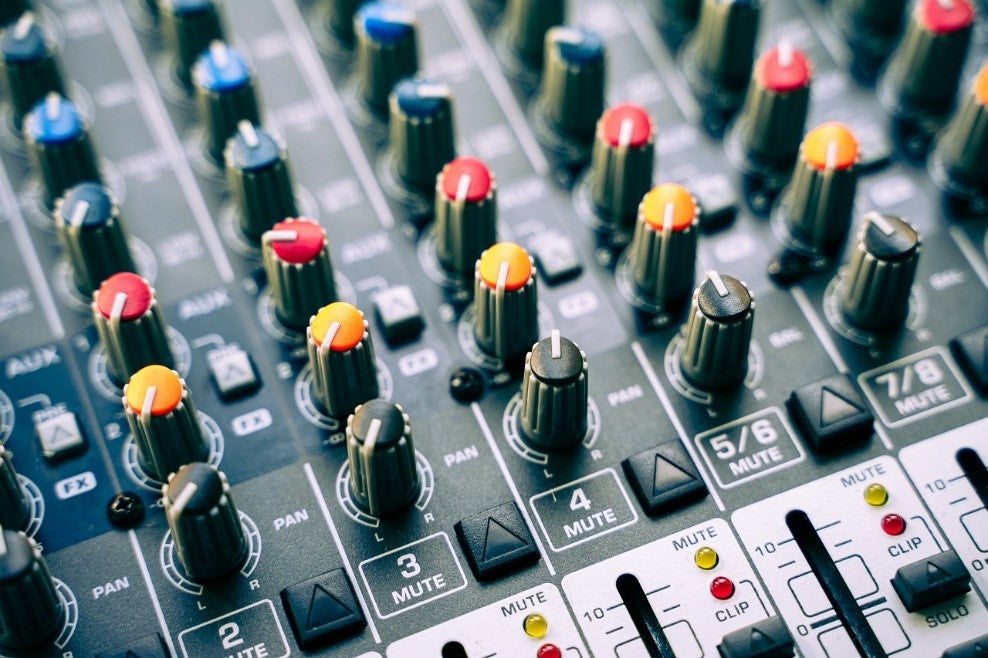Channel Count and Configuration
The first step in selecting a sound mixer is determining how many input channels you need. Consider the number and types of microphones, instruments, and other audio sources you'll be connecting to it. Mackie mixers offer models ranging from compact with a few channels to large-format mixers with dozens of inputs.
Mono Versus Stereo Channels
Ensure the mixer provides an appropriate mix of mono channels (ideal for microphones and individual instruments) and stereo channels (perfect for keyboards and playback devices).
Mic Preamps
Mackie sound mixers are known for their Onyx mic preamps, which deliver high headroom and low noise, essential for achieving clear and professional sound quality. Superior preamps ensure that the audio captured is as true to the source as possible.
Equalization (EQ)
A versatile EQ section is vital for shaping your sound. Look for sound mixers with at least a 3-band EQ (covering low, mid, and high frequencies) on each channel. Some models offer sweepable mid frequencies, providing more precise control over the sound. Some Mackie mixers include a graphic EQ for the main output, which is beneficial for overall sound shaping and can help address issues with room acoustics.
Auxiliary Sends and Returns
Auxiliary sends are used for creating monitor mixes or routing signals to external effects processors. The more aux sends a mixer has, the more flexibility you have in managing different audio paths. Many Mackie mixers come with dedicated effects sends and built-in effects processors, simplifying your setup by eliminating the need for external effects units.
Built-in Effects
Many Mackie mixers feature built-in digital effects such as reverb, delay, and chorus. These effects can enhance your mix without requiring additional external gear. Evaluate the quality and variety of these effects to ensure they meet your needs.
Connectivity
Verify that the mixer has the necessary input (XLR, TRS, RCA) and output (main outputs, monitor outputs) connections for your setup. Flexible connectivity options are essential for integrating the mixer into various audio environments. For those looking to record or stream audio, a mixer with USB connectivity is a significant advantage. It allows direct interfacing with a computer, facilitating easy recording and playback.
Routing Flexibility
Advanced routing options like subgroup routing can help manage multiple inputs and outputs more efficiently. Look for features such as direct outs, inserts on channels, and comprehensive routing options to maximize your mixing capabilities.
Build Quality and Portability
Mackie mixers are known for their rugged construction, built to withstand the rigors of live performance and frequent transport. Ensure the mixer’s build quality matches your needs, especially if you plan to use it in demanding environments. Consider the physical size and weight of the mixer, particularly if you need a portable solution. Compact models are easier to transport, while larger models offer more features and connectivity.
Additional Features
- Phantom Power: Essential for using condenser microphones, phantom power is a standard feature on most professional mixers.
- Solo and Mute Buttons: These controls are crucial for monitoring and managing individual channels efficiently during live performances or recording sessions.
- Metering: Accurate visual metering (LEDs, VU meters) is important for setting levels and ensuring your audio signals are at optimal levels without distortion.
Mackie Sounds Mixers for Your Budget
When you’re ready to elevate your audio mixing experience, AVLGEAR is your trusted destination. With an extensive range of Mackie sound mixers tailored to diverse needs and budgets, we ensure that every customer finds the perfect solution for their audio setup. Whether you're a seasoned professional or an aspiring enthusiast, we provide the expertise and support to help you make an informed decision. To learn more about us or to get assistance, reach out to us.

